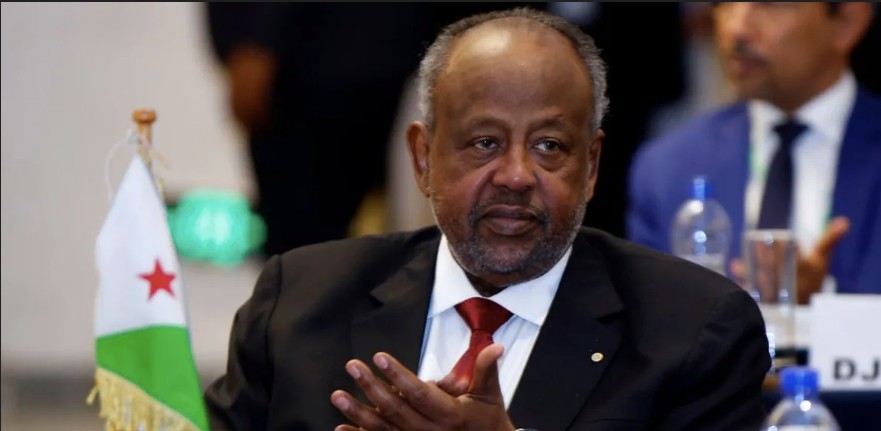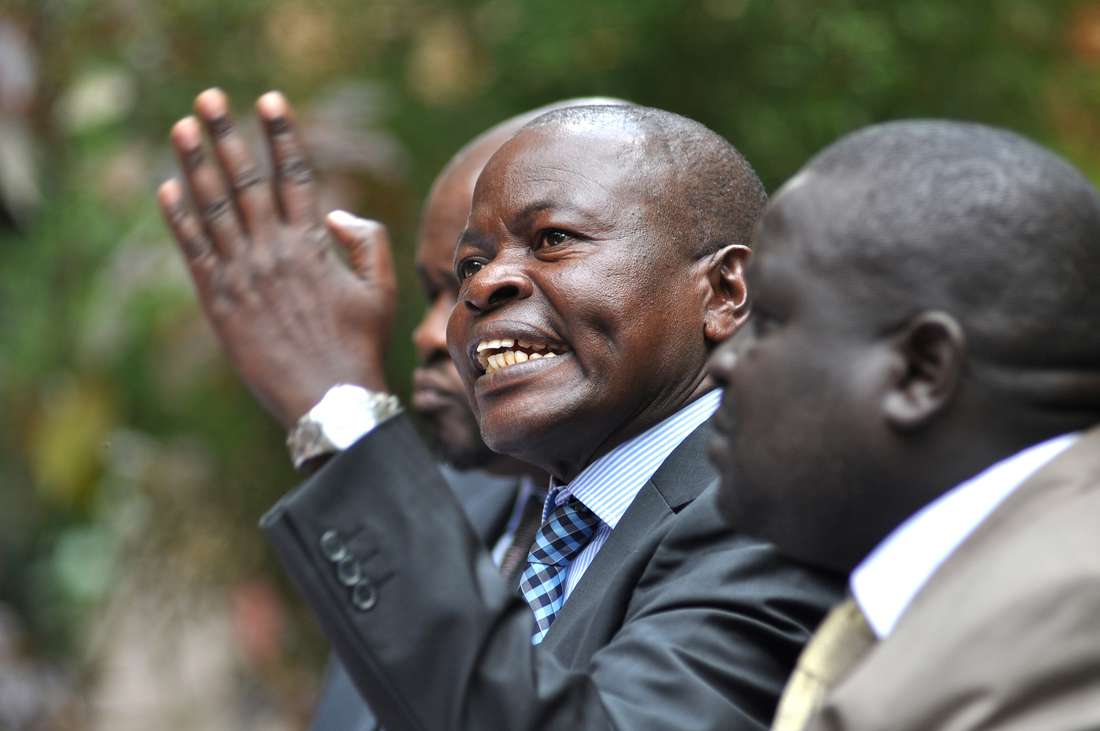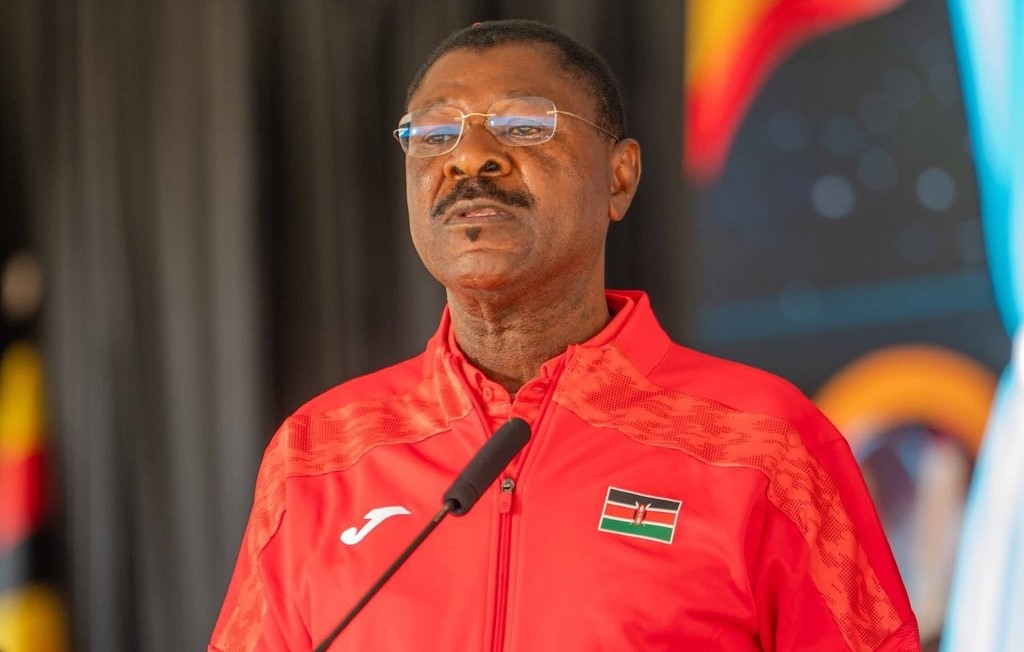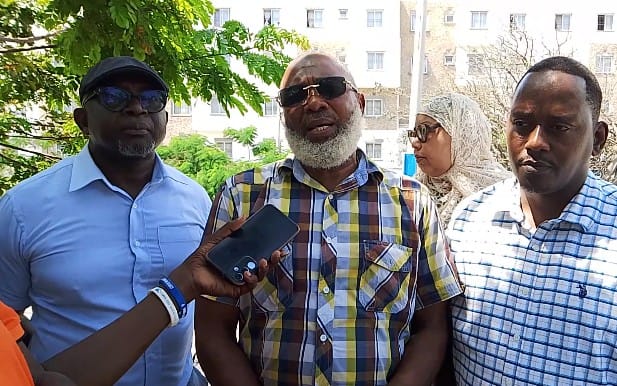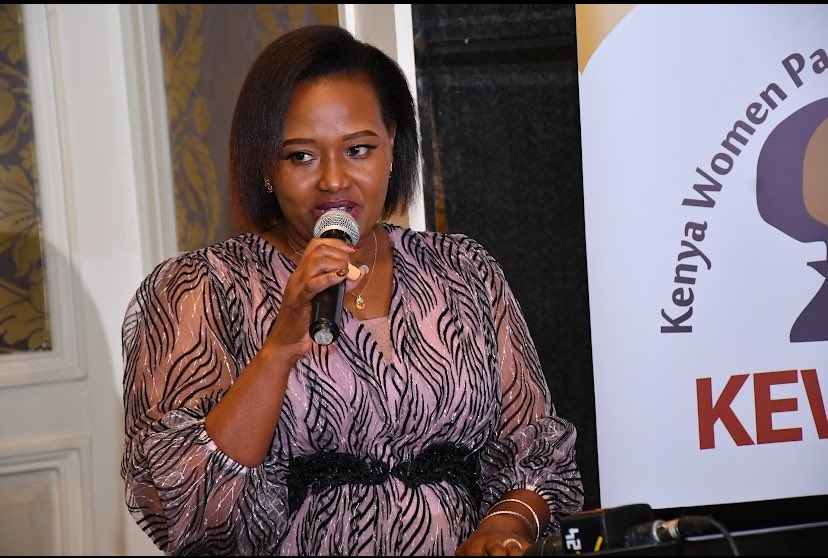OPINION: African media mustn’t allow Western media to dictate, distort African narratives
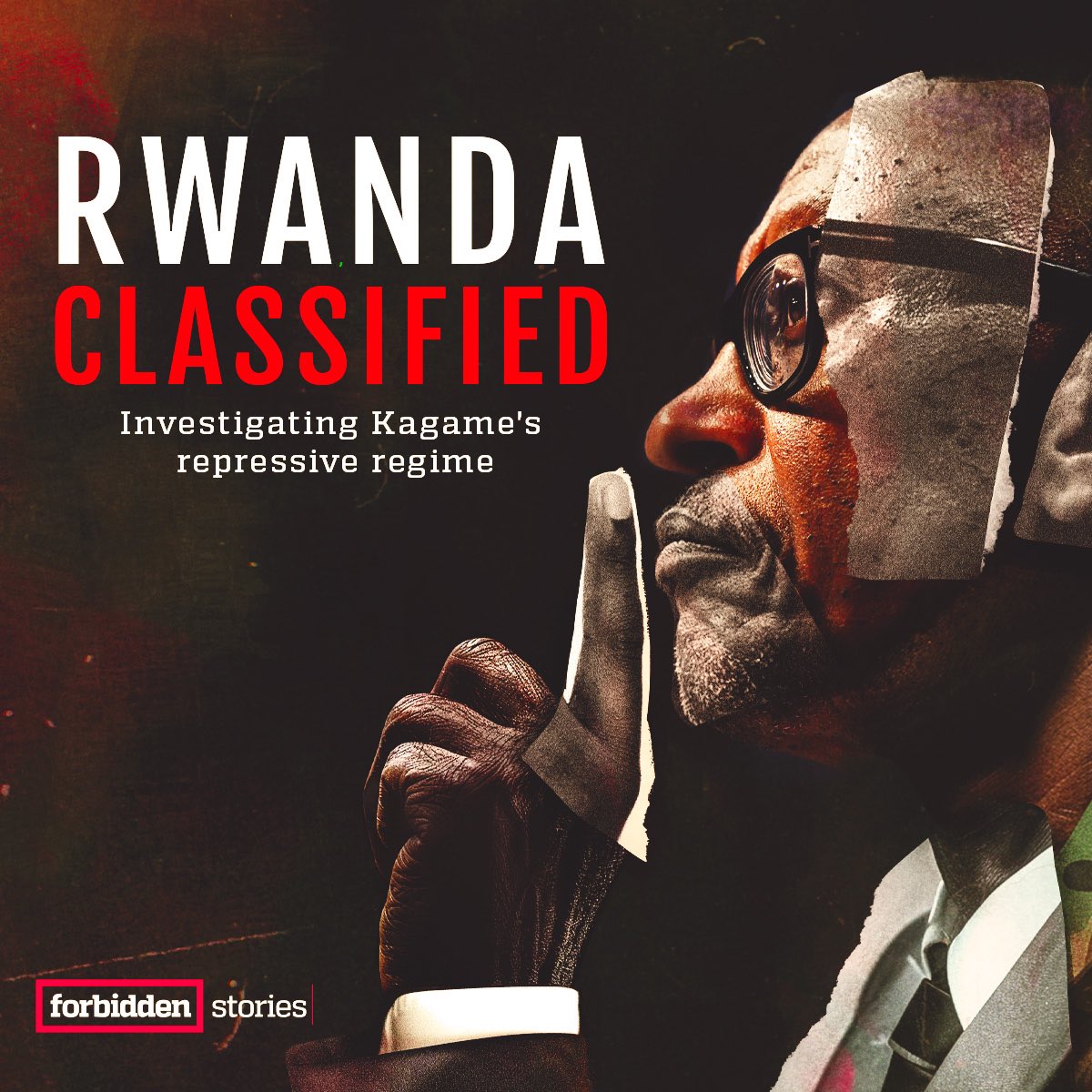
Why is it that it is Western journalists and their media houses that decided to “investigate” an African country that by any measure is doing well?
The past two weeks have seen orchestrated negative stories on Rwanda in major Western media, such as The Guardian (UK), Dr Spiegel (Germany), Le Monde (France), Le Soir (Belgium) and from Israel, Hareetz.
Coordinated by Forbidden Stories, they are part of a dossier of so-called investigative reports on Rwanda put together by 50 journalists from 11 countries (nearly all European) and carried by 17 media outlets.
More To Read
- Revenue raise, prudent debt key to Africa’s 2026 upgraded growth prospects - IMF
- Study in Botswana, Mauritius, Rwanda finds luxury tourism poses risks to African economies
- Rwanda calls Human Rights Watch's count of new graves at military cemetery "disrespectful"
- The international order is shifting: African countries have an opportunity to reshape global power relations
- US President Donald Trump on upcoming Rwanda-DR Congo deal: ‘A great day for Africa’
- Denmark commits Sh41 billion to boost East Africa’s resilience amid global trade turmoil
The title - Rwanda Classified: Investigating Kagame’s repressive region – raises expectations of a bombshell of damning fresh revelations. Instead, it dredges out old, debunked accusations sourced from known liars, disgraced individuals and people with a specific agenda or vendetta against Rwanda’s leaders.
In that sense, it is disappointing. Rather than being an expose of alleged atrocities, it is an open attack on President Paul Kagame and the government of Rwanda. This is why some have called them a media blitz on Rwanda, and others, media terrorism.
Rwandans responded to them with a barrage of denunciation of their own in social media, traditional press and on radio and TV talk shows. In addition to revealing the lies, inconsistencies, insincerity, and compromised journalistic standards and investigative ethics, they took issue with this being an outsider’s job and their unstated aim: deciding and driving the narrative about Africa.
Why is it that it is Western journalists and their media houses that decided to “investigate” an African country that by any measure is doing well? Is it because African journalists are not up to it and somebody must do it for them or are complicit in the repression? That surely is condescending.
The originators and authors of the Rwanda Classified anticipated such a strong reaction. But they had not reckoned with its intensity. Rwandan media warriors can be unrelenting in defence of their country when under attack.
They also expected support from within the country and among its detractors outside. Whatever backing they got was muted or absent altogether. It has been a shock to them. It should not, though, because Rwanda’s story is well known. It is difficult to lie about it.
You might dismiss this as the expected reaction of regime supporters. Even assuming it may be so, what would you say about the shocked silence from those expected to agree with them? In addition, the rebuttal of their claims, point by point?
Rebuttal
A swift response also came from a quarter they did not expect and one difficult to write off as Kagame’s praise singers. Thirty-two eminent historians and scholars, writers and journalists from across the world signed a rebuttal of Rwanda Classified and dismissed it as a mere hatchet job on Rwanda.
These include Professor Vincent Duclert, a French historian who chaired a commission that, in June 2021, produced the report: France, Rwanda and the Tutsi Genocide (1990-1994) that detailed French responsibility in the genocide.
Among them are also Mehdi Ba, a journalist at Jeune Afrique, Senegalese writer, Boubacar Diop, Professor Philippe Denis, a historian who has just published a book titled, The Genocide Against the Tutsi and the Rwandan Churches: Between Grief and Denial, and Linda Melvern, a British investigative journalist who has written extensively on Rwanda and the genocide.
These writers and scholars, whose collective knowledge of the recent history of Rwanda and the wider region few can rival, have examined the stories in Rwanda Classified and found fault with nearly everything about them.
First, they questioned the independence of the so-called investigation, The journalists were mobilised for this project and given an assignment. They were funded by whoever assigned them the job. Anyone with knowledge of the history and politics of this region would probably know who the sponsor is.
Then take issue with the objectivity of the analysis and credibility of the sources. The analysis was made to fit the agenda of the sponsor. Consultants, collaborators, and major sources in Rwanda Classified stories can hardly be said to be disinterested witnesses or investigators.
Some belong to a category they call hate preachers, conspiracy theorists, and notorious deniers of the genocide against the Tutsi but are presented in the stories as voices critical of Kagame.
One is Michela Wrong, a British journalist and author close to Rwandan exiles, most of them fugitives from justice, for whom she has become a spokesperson. She has made a name as a leading Kagame hater. She seems to have been drafted into the Forbidden Stories narrative because of her revisionist credentials regarding the genocide against the Tutsi. Her writings on Rwanda offer an alternative narrative to the real history.
Another is Judi Rever, a Canadian journalist and author presented in the stories as “a journalist researching the Rwandan regime”. The reality is that she is one of the leading deniers of the genocide against the Tutsi in Rwanda. Her denialism has turned into a personal hate campaign against Kagame and the RPF government.
Charles Onana is another genocide denier, revisionist and purveyor of conspiracy theories on whose works Rwanda Classified relied for its stories.
Another of their sources and collaborators is Jambo ASBL, a group of Rwandan exiles in Belgium, most of them descended from genocidaires or old, divisive and extremist politicians. They are very active on social media where they spew all manner of abuse and disinformation about Rwanda. Rwanda Classified calls them a media based in Belgium when in reality they are deniers and revisionists of the genocide.
Discreditation
Forbidden Stories, the sponsors of Rwanda Classified, could not have assembled a more discreditable and difficult-to-believe group of well-known detractors, in some cases sworn enemies of Kagame and his government to present their case. Their objective was not to expose the repression of the regime as they claimed. It was to discredit it.
Already, there is a fallout from the Rwanda Classified hatchet job that its authors did not anticipate. Some writers for one of the newspapers in the consortium behind Rwanda Classified have denounced the unethical, manipulative and agenda-driven negationism of the project.
Again assuming for a moment that there was some truth in what they said despite their well-documented hatred of the president and his government, what would one say about Collette Braeckman’s condemnation of their underhand, unprofessional and manipulative methods to obtain information and then bend it to suit a certain agenda?
Collette Braeckman, a Belgian journalist at Le Soir, one of the outlets for the stories, has accused Forbidden Stories of using her article on President Kagame without her knowledge in a project she was not aware or part of. She has accused them of unprofessional, manipulative and unethical methods to obtain information and then bend it to fit their objective.
It is easy to see why they would want to use Braeckman in their smear campaign. Her knowledge and credibility because she has covered the Great Lakes Region extensively.
Aline Cateux, an anthropologist and correspondent for Le Soir in the Balkans, has also faulted them for their methods and vowed she would no longer be the newspaper’s correspondent. In a post on X (formerly Twitter) on June 10, she said she objected to their use of negationist sources and refusal to respond to address the concerns of the 32 scholars and writers whom she was part of.
When it comes to genocide and its denial, she knows what she is talking about. She has lived and worked in Bosnia for 25 years and seen negationism every day. Now that Le Soir is also involved in it, she says she can no longer contribute to it.
So, can anyone take seriously a consortium of journalists and media houses that employ unethical practices, abandon accepted journalistic standards or at best bend them, and exhibit methodological bankruptcy against a country and its leadership that everyone else thinks is the very model of success? Why would anyone do this?
Rwandans think they know the answer and the eminent scholars concur. In Rwanda Classified, Forbidden Stories has an agenda: to throw mud at the government of Rwanda, deny or discredit its achievements and call for its removal. The scholars call it “enemysation” of Rwanda, which, according to them has since 1994 been “fuelled by networks nostalgic for Belgian and French control of Rwanda, and by the extremist diaspora resulting from the crushing of Hutu Power by the RPF in 1994.”
It goes beyond that to the audacity to defeat their man, the refusal of Rwanda to be a failed state but instead rise from the ashes, rebuild and reconcile and unite its citizens. The sin is for insisting on making its own choices about governance, economic development, and international relations. It has refused to behave to type – not corrupt, uses aid effectively and its government is effective. Now it is beginning to play a significant role beyond its borders.
This is what “enemyisation” is. It is the reward for doing right and can be bestowed on any African country doing what Rwanda has done. Yet these are what should constitute the narrative of stories about African countries. Our journalists and scholars should be telling this and not allow outsiders to distort them.
Mr Joseph Rwagatare is a governance and diplomacy analyst
Top Stories Today



